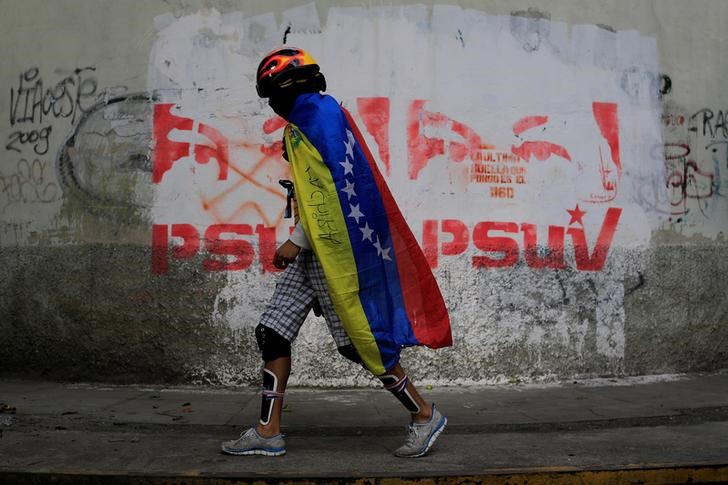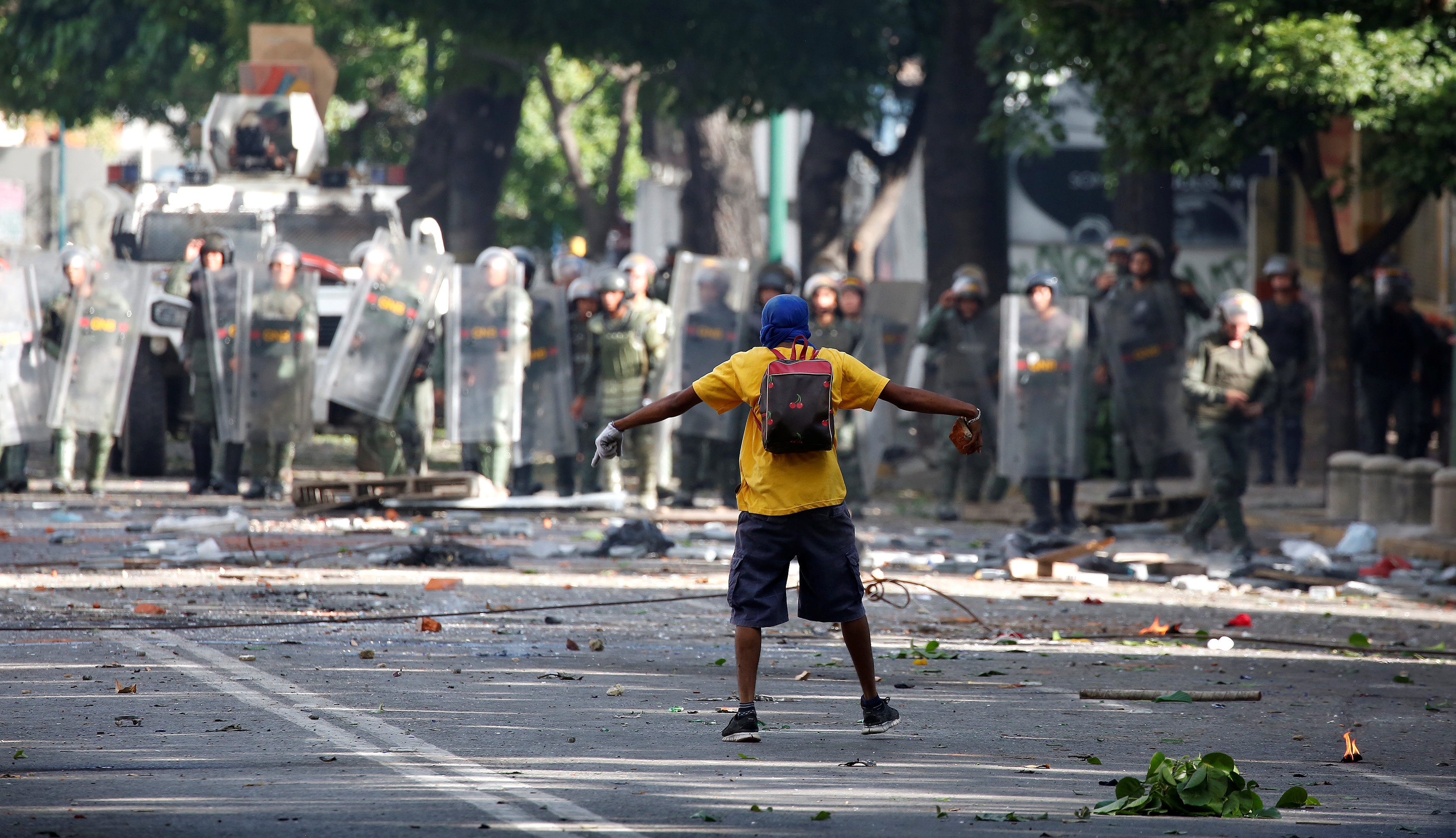
By Nandita Bose
CHICAGO (Reuters) – Walmart.com, trailing Amazon.com Inc in the number of goods for sale on its website, is recruiting vendors in China and other countries to boost its online offerings in a pivot away from Wal-Mart’s Made-in-America campaign.
While there is a financial incentive behind the move, Wal-Mart’s decision comes out of necessity: not all the goods its customers want – ranging from jeans to bicycles to beauty products – are manufactured within the United States.
For graphic on price of patriotism click: http://tmsnrt.rs/2w39FKO
That reality pits Wal-Mart against President Donald Trump’s “Made in America” push. It also risks alienating some of Wal-Mart’s existing U.S. vendors since it runs counter to the American-made pledge the retailer made in 2013 in a bid to win customers, and satisfy unions and other critics who said its drive for low cost goods was undermining American jobs.
According to two sources with knowledge of the matter, Wal-Mart Stores Inc in February began inviting sellers from China, the United Kingdom and Canada to list on the marketplace section of Walmart.com, where it earns a share of revenue from goods sold and delivered to customers by third-party vendors.
Previously, it only allowed U.S. based sellers on the marketplace site, sources said.
Calling the unreported move a “measured approach,” Wal-Mart Vice-President of Partner Services Michael Trembley confirmed the invite-only program. He said foreign sellers currently make up less than five percent of its seller base.
Trembley said Wal-Mart’s move is focused on meeting customer demand for different types of products and increasing online assortment. Wal-Mart’s marketplace inventory has quintupled this year to 50 million items. That still pales in comparison to Amazon’s nearly 300 million products online, analysts said.
Shrinking that gap is key to Wal-Mart’s strategy to beat Amazon. Launched in 2009, the marketplace platform contributes more than 10 percent to Wal-Mart’s e-commerce revenue, but barely registers in total sales of nearly $486 billion, according to data from e-commerce analytics firm Marketplace Pulse. The data could not be independently verified by Reuters.
Amazon’s third-party marketplace, which also uses global vendors from countries like China, contributes to nearly half of Amazon’s retail sales, analysts said.
The move brings risks beyond the impact to Wal-Mart’s sales. Trump kicked off a “Made in America” week earlier this month where he promised he would take more legal and regulatory steps during the next six months to protect American manufacturers, lashing out against trade deals he said have hurt U.S. companies.
Trump’s comments come as the White House is seeking to renegotiate the 23-year-old North American Free Trade Agreement (NAFTA) in an effort to shrink the trade deficit with Canada and Mexico.
“No longer will we allow other countries to break the rules, steal our jobs and drain our wealth,” Trump said in a weekly address tweeted by the White House on July 21. “Instead we will follow two simple but very crucial rules: We will buy American and we will hire American.”
In a statement on Wednesday, Wal-Mart proposed policy actions to boost U.S. manufacturing which could help capture $300 billion worth of products that are imported. The retailer urged policymakers for simpler regulations on things like Made in USA labeling and modernize trade agreements.
Cindi Marsiglio, vice president for U.S. sourcing and manufacturing at Wal-Mart, told Reuters it is on target with its pledge to buy $250 billion worth of American-made products by 2023, and remains committed to boosting U.S. manufacturing.
“AGAINST THE SPIRIT OF THEIR ‘MADE IN AMERICA'”
Some of Wal-Mart’s existing U.S. vendors – whom Wal-Mart has recruited to supply goods manufactured domestically as part of its highly publicized Made-in-America sourcing plan – are on edge about competition with foreign goods.
“It goes against the spirit of their ‘Made in America’ push,” said one seller of American-made socks to Wal-Mart.com, who spoke on condition of anonymity for fear of hurting business relations with the retailer.
Six out of seven U.S. manufacturers Reuters spoke with who are selling to Walmart.com said they were disappointed with the retailer’s move. Marsiglio said the retailer had not heard any complaints about its move to allow global vendors on its marketplace.
“It’s bad timing to start such a program given President Trump’s push in this direction and the resources they (Wal-Mart) spend on promoting a patriotic image,” said another vendor, who sells pet products.
Darius Mir, chief executive of MIA (Made in America) Seating Corp, a Tennessee based seller of office furniture to Wal-Mart.com, said he supports free trade and is open to competition on the platform. But he thinks it would help U.S.-based vendors if Wal-Mart could label “Made in USA” items listed on its website.
“Walmart must distinguish between a ‘Made In USA’ product from all others by grouping the American made product separately, and highlighting the Made In USA label,” he said.
HOLLOWED-OUT MANUFACTURING
Wal-Mart’s third-party marketplace is part of an overall online initiative that is starting to show growth, with e-commerce sales growing 63 percent during the first quarter.
The progress has been led by e-commerce chief Marc Lore, who took over last year after Wal-Mart paid $3.3 billion for Jet.com, an online retail platform he founded.
Wal-Mart’s Trembley said the retailer’s approach to growing its marketplace, which analysts said has been slow, has been designed to avoid problems like counterfeit products, which is a challenge for rivals Amazon and Alibaba.
He said Wal-Mart vets sellers to the third party marketplace and has a high bar for selection.
The retailer has also put in place requirements for global vendors that could create U.S. jobs. For example, foreign sellers must be able to fulfill orders from a U.S.-based warehouse, they must use a U.S.-based return center and have customer support operating during U.S. business hours, Trembley said.
But finding U.S.-based suppliers remains a challenge. Beginning in the 1980s, Wal-Mart led a push to look overseas for inexpensive inventory, and the Made-in-America push—with its implied effort to rebuild a hollowed-out manufacturing base—has created more publicity than sales, retail consultants and analysts said.
Wal-Mart’s Marsiglio in an interview in April told Reuters that finding U.S.-based suppliers “remains one of the top challenges across our supplier base.”
This week she said one of the ways Wal-Mart is addressing that challenge is by working with existing suppliers and leveraging their manufacturing capacity to produce multiple items. For example, the retailer is working with a playing cards supplier who is now manufacturing plastic cutlery.
Wal-Mart had 10,249 sellers on its marketplace at the end of 2017’s first quarter, a substantial jump from 400 in the same period a year ago, according to data from Marketplace Pulse. This compares to millions of sellers on Amazon’s marketplace.
But few American consumers are willing to pay higher prices for American-made items. A Reuters Ipsos poll released on Thursday found 70 percent of Americans think it is important to buy U.S.-made products but 37 percent said they wouldn’t pay more for U.S.-made goods.
“This all boils down to one thing,” said Juozas Kaziukenas, founder and chief executive of Marketplace Pulse, the e-commerce analytics firm. “Wal-Mart’s marketplace has not been a success story, but with their renewed focus on e-commerce, they are trying to do everything they can to change that,” he said.
(Editing by David Greising and Edward Tobin)











